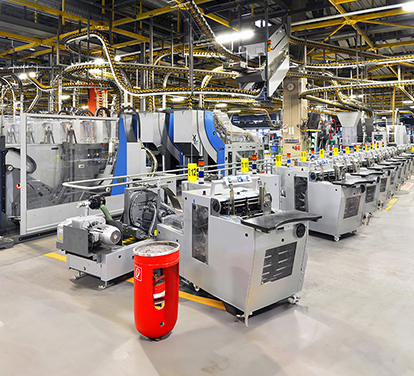Industry: Renewables & Environment; Automobile & Energy Storage
About the Client
The Client is an American automotive and energy storage company based in Burlingame, California. They design and manufactures zero-emission battery-electric transit buses, electric charging systems, and battery configurations. Its services range from pre-delivery consultations and training to midlife inspections and refurbishments including parts replacement, warranty, onsite field, and battery testing. This customer serves transit agencies across North America and was founded in 2004.
Problem Definition and Challenges
- ServiceMax parts master was not up-to date; parts frequently missing from master list
- Updates to existing parts in Oracle were not reflected in ServiceMax
- Inconsistent part master led to problems when ordering parts for service use
- Future integrations of field service parts requests to Oracle Sales Orders required a common set of parts
- Service parts requests were not immediately available in Oracle as demand against inventory
- Errors occurred when manually entering sales orders for service parts requests
- Shipping information unavailable to Field Service Engineers for parts they ordered
The Integration Solution Overview
The solution created for client is built on the Boomi integration platform. The Boomi process runs on a scheduled job where at a set number of minutes, the Boomi integration script tells Salesforce to look for new Parts (Items) or Parts Requests (Sales Orders). If none are found, the script exits. When there are new requests, the script fetches all required data entered for Parts or Parts Requests into an Oracle staging table. Oracle will then run a scheduled job to check the staging table for create/updates items or Sales Orders in Oracle. If any records are found, it performs pre-validation steps before creating/updating items or Sales Orders. Once an order enters Oracle, it has pre-defined steps to be performed manually before the Sales order is completed and the shipment is confirmed. Once the shipment is confirmed, details are sent back to client’s Salesforce application via the Part Order process.
Business Requirements
- Oracle EBS to Salesforce (ServiceMax) Integration.
- Create/Update Parts
- Create/Update Products
- Salesforce (ServiceMax) to Oracle EBS Integration
- Sales Order and Order Line Item Creation in Oracle EBS based on Parts requests in Salesforce (ServiceMax)
- Update back to Salesforce (ServiceMax) with EBS Order Number or EBS internal ID
- Update Shipping information in ServiceMax to correspond with updates in Oracle EBS
- Customized Notifications and Alerts
- EBS Customization needed for Integration (Item Master)
- EBS Sales Order
- Package for staging table data validation, SO creation and update, Error notification logic
- Shipping details extraction based on last run, updates, process flag logic







